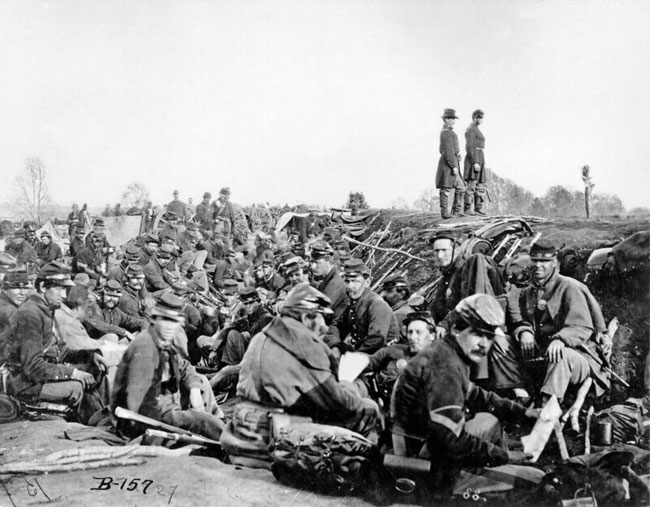Civil War Soldiers Spread Lies to Keep Spirits Up

Get the world’s most fascinating discoveries delivered straight to your inbox.
You are now subscribed
Your newsletter sign-up was successful
Want to add more newsletters?

Delivered Daily
Daily Newsletter
Sign up for the latest discoveries, groundbreaking research and fascinating breakthroughs that impact you and the wider world direct to your inbox.

Once a week
Life's Little Mysteries
Feed your curiosity with an exclusive mystery every week, solved with science and delivered direct to your inbox before it's seen anywhere else.

Once a week
How It Works
Sign up to our free science & technology newsletter for your weekly fix of fascinating articles, quick quizzes, amazing images, and more

Delivered daily
Space.com Newsletter
Breaking space news, the latest updates on rocket launches, skywatching events and more!

Once a month
Watch This Space
Sign up to our monthly entertainment newsletter to keep up with all our coverage of the latest sci-fi and space movies, tv shows, games and books.

Once a week
Night Sky This Week
Discover this week's must-see night sky events, moon phases, and stunning astrophotos. Sign up for our skywatching newsletter and explore the universe with us!
Join the club
Get full access to premium articles, exclusive features and a growing list of member rewards.
Rumors were spread among Confederate soldiers to keep morale high when the Civil War wasn't going their way, a new study suggests.
Circulation of the optimistic "news"—such as false reports of Union Gen. Ulysses S. Grant's death—kept up throughout the war and became more and more outlandish as the Confederate South progressively lost ground, said the study's author.
"Even towards the end of the war, most of their rumors were positive and false—weird stuff like talk of a world war in which England and France would join alongside the Confederates," said Jason Phillips, a Mississippi State University historian.
Phillips' research is part of a book, "Diehard Rebels: The Confederate Culture of Invincibility" (University of Georgia Press, 2007).
Never say die attitude fueled rumors
While Phillips researched the rationale behind the "never say die" attitude in the South, he found evidence of the tall tales and misguided information in the soldiers' personal letters, journals and newspapers.
"The larger question that I asked was how could reasonable Confederates expect to win the Civil War after so many turning points," Phillips told LiveScience. "And what I found was that the losing side just persisted against all hope—a common theme you see all the time during conflict. As a human being whose life is on the line, you're drawn to the information that's hopeful."
Get the world’s most fascinating discoveries delivered straight to your inbox.
Some of the lies floating around included the story of Grant's death, battles that had been won instead of lost and an impending stock market crash in the Union North.
Figuring out where the 150-year-old rumors originated is nearly impossible, Phillips said, but at least a few were fabricated by the upper echelon of the military.
"I have evidence that [Confederate Gen.] Robert E. Lee sent speeches to troops about things that didn't happen just before battle as a way of boosting spirits," said Phillips.
As soon as a rumor surfaced, it spread like wildfire between camps to loved ones back home, Phillips said.
"The soldiers themselves were definitely gossips. And unlike today, the letters they wrote to their families weren't censored," said Phillips. "The men who were the most convinced they were going to win, the stalwart defenders of the Confederacy, were the most fervent rumor mongerers. They were trying to rally their countrymen during a time when everyone around them was quitting."
Northerners heard a different version
Union soldiers in the North didn't play the same kind of broken telephone game with stories, Phillips said, because their situation was less volatile.
"The Union soldiers had much better access to information, especially as the war got worse," Phillips explained. "All newspapers at the time were partisan, but the northern news perhaps less so. The government was also more organized is disseminating the information."
 Live Science Plus
Live Science Plus






